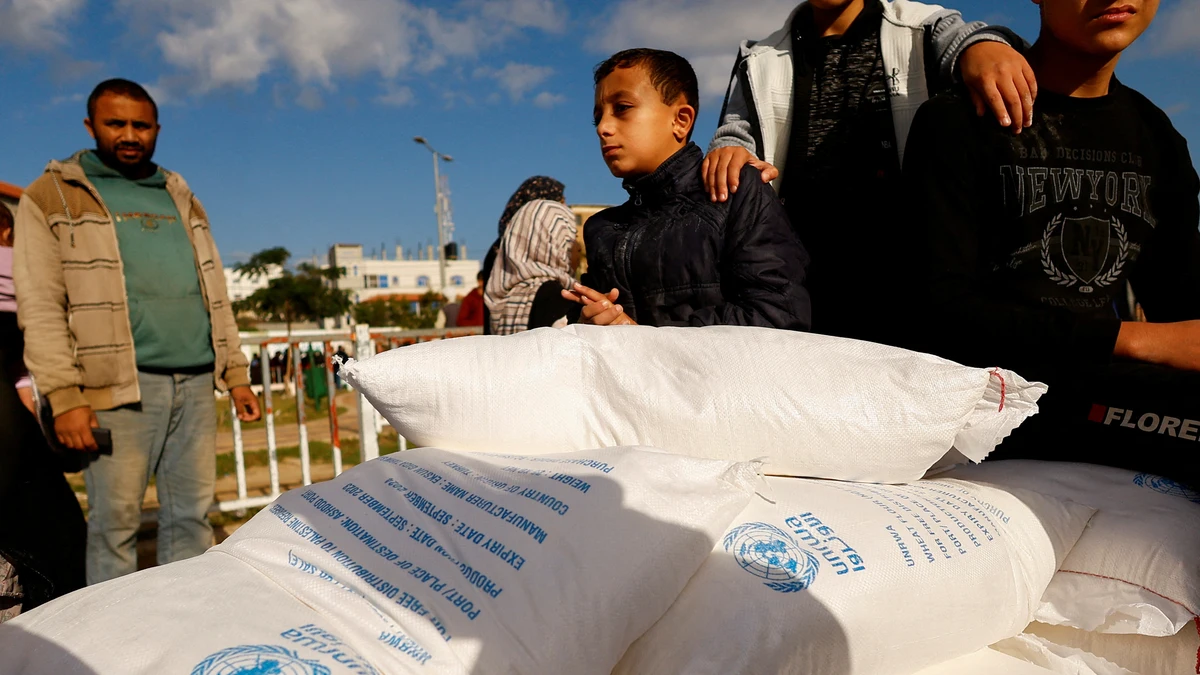
The Secretary General of the UN, António Guterres, will meet this Tuesday with potential donors to try to save the UNRWAthe United Nations agency for Palestinian refugees, when there are already more than a dozen countries that They have suspended their financingmany of whom are among the 20 that contributed the most help to the organization.
Its withdrawal represents losses of more than 60% of the budgetannual of the agency and the European Commission, its third largest donor, is considering freezing its contributions as well. Spain, on the other hand, does will continue to fund the organization.
UNRWA has a clear mandate from the United Nations: to protect Palestinian refugees. Right now two million people in the Gaza Strip They may be left without humanitarian aid due to this decision by several countries to suspend financing, but this not only affects the Palestinians in the Strip, but six million displaced Palestinians In several countries they have also depended on URNWA for 75 years.
The agency’s role is crucial to guarantee access to education, health and humanitarian aid of Palestinian refugees. A task that becomes even more important in the current context, in full war in Gaza. And the agency is in charge of distributing the little aid that enters the enclave and, in addition, its facilities and schools serve as a refuge from the bombs for thousands of families.
The cascade of withdrawals comes in the wake of Israel’s indictment of 12 UNRWA workers for allegedly having participated in Hamas attacks on October 7th. Thus, the accusation against only 12 employees out of 13,000 working in Gaza is causing a collective punishment against 30,000 members of this United Nations agency that also carries out humanitarian work in Libya, Syria, the West Bank and Jordan.
UNRWA has already put a figure on the consequences of these cuts in its funding and they are not just numbers, they are people: six million Palestinians will be left without healthcare in the Middle East and 500,000 students, without education. For Gazans, that is, in the words of Ahmed Al-Nahal, “a death sentence”. “If the agency stops operating in the Gaza Strip, we will die, we will starve in the streets,” warns the young Palestinian.
Source: Lasexta
Ricardo is a renowned author and journalist, known for his exceptional writing on top-news stories. He currently works as a writer at the 247 News Agency, where he is known for his ability to deliver breaking news and insightful analysis on the most pressing issues of the day.












